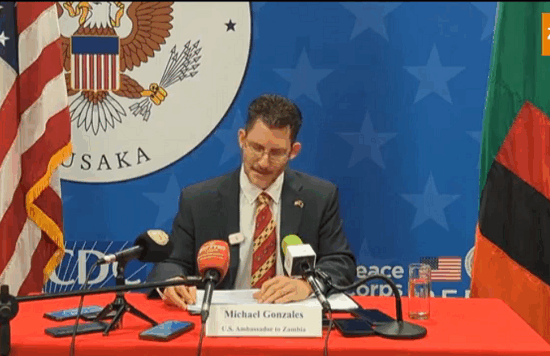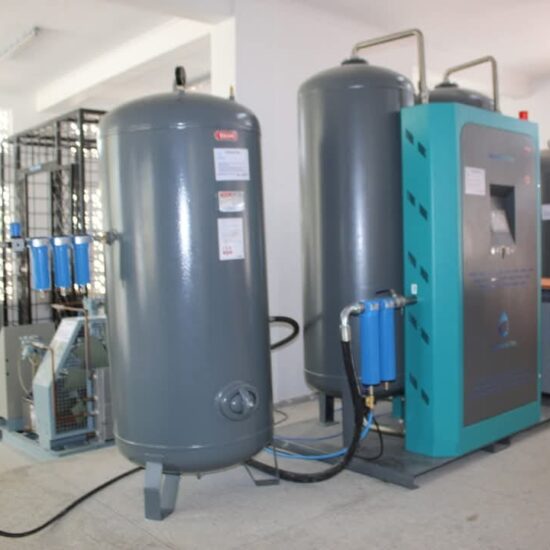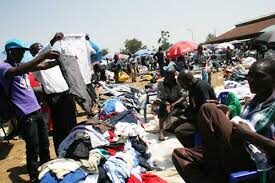
Coca-Cola Beverages Africa (CCBA) has graduated over 300 women and youth from its waste management program aimed at combating plastic waste in Zambia.
The program, which was launched in 2018, has been instrumental in training and equipping women and youth with skills and knowledge in waste management.
The participants were taken through a three-day course from 11 October, starting with theory that covered various topics, including waste management, recycling, and entrepreneurship, followed by a site visit to a landfill, and finishing with a visit to recyclers.
Speaking during the graduation ceremony attended by the Zambian Business Times ZBT, CCBA Southern Region Managing Director, Basil Gadzios said that the program was part of the company’s commitment to promoting sustainable practices and protecting the environment.
The graduates also received support from CCBA in the form of start-up kits to enable them to start their own waste management businesses. This initiative is aimed at empowering graduates to create employment opportunities for themselves and others in their communities.
CCBA Southern Region Managing Director, Basil Gadzios, “The interconnected global challenges of packaging waste and climate change have made this a focus for our business and communities.”
“The Coca-Cola Company and its bottling partners are taking a hard look at the packaging we use and how we can drive change.” He added
“Our sustainable packaging strategy aims to create systemic change through a circular economy for our packaging – from how bottles and cans are designed and manufactured, to how they’re recycled and reused.
“We have a responsibility to help solve the global plastic waste crisis, and we’re leveraging our scale and reach across markets to achieve our sustainability goals and reduce waste pollution,” Gadzios said.
“CCBZ, a subsidiary of Coca-Cola Beverages Africa, has committed to invest in our planet and our packaging, to help put an end to the plastic waste crisis, working in partnership with The Coca-Cola Company which launched a sustainable packaging initiative called World Without Waste in 2018.”
As a group, Coca-Cola Beverages Africa has committed to collecting a bottle or can for every one it sells by 2030, making all its packaging 100% recyclable by 2025, having 50% recycled content in its packaging by 2030 and making 25% of its packaging reusable by 2030.
“We have the scale and reach to make a real difference, and we’re using our leadership position to drive change and help put our planet on a more sustainable path,” said Gadzios.
“We want our business and the communities we serve to benefit from greater shared opportunity. This is about more than the bottom line because opportunity is not measured by money alone. Opportunity means a better future for people across the African continent.
“We are working in our communities to educate people on why and how to recycle through training like this one, on-package messaging, and more to create a healthier environment for all.
“Tackling the global plastic waste crisis requires cross-sector collaboration and alignment on common principles and targets,” said Gadzios.
“We work with a range of stakeholders at a national and local level. This includes partnering with government and community organizations to strengthen recycling infrastructure and boost collection rates, collaborating with customers, peers, and industry associations to support a circular economy; and teaming up with suppliers, startups, and R&D partners to fuel sustainable packaging innovation.
“By following our values and working for a better-shared future, we create inclusive growth that benefits communities, women and youth, our customers, our employees, and our shareholders.” Remarked Gadzios.
speaking at the same event Local government and Rural Development Permanent Secretary Mambo Hamaundu who was the guest of honor commended the Coca-Cola company for the initiative adding that the initiative will promote a clean and healthy environment.
Hamaundu expressed concern about the illegal dumping of plastic waste and Challenged members of the general public to stop the habit of illegal and indiscriminate dumping of waste which he said can damage the environment.
He urged graduates to be ambassadors of ensuring that there is no indiscriminate dumping of waste and challenged other corporate bodies to emulate what Coca-Cola is doing by collecting waste plastic bottles and advised members of the general public to separate plastic materials from other waste products to make work easy for waste aggregators and recyclers.
The program has not only had a positive impact on the environment but has also brought economic benefits to the participants and the country at large. The graduates have been able to create jobs, generate income, and contribute to the country’s economy through the recycling of plastic waste.
According to a report, Zambia generates over 1.3 million tons of waste annually, with only 10% of the waste being collected and disposed of properly.
This has led to the pollution of the environment and a negative impact on public health. The waste management program by CCBA is, therefore, a step in the right direction in addressing the waste management challenges in Zambia, and it is expected to have a significant impact in the long term.
The graduation of over 300 women and youth from CCBA’s waste management program is a significant milestone in the fight against plastic waste in Zambia. The program has not only equipped the participants with skills and knowledge but has also contributed to the country’s economy through job creation and income generation. We hope that other companies will follow in CCBA’s footsteps and invest in sustainable practices to protect the environment for future generations.






